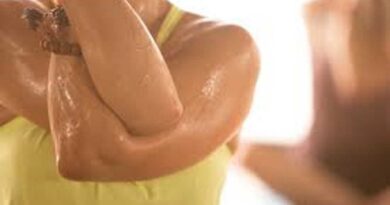Your Low-Plastic Life
September 2019
Vecinos: information and advice for our American communities
by Ellen Lee Alderton
By now, you’ve probably heard that plastics are flooding into our oceans. In fact, some scientists estimate that by the year 2050 there will be more tons of plastic than sea life in the world’s waters.
 And sadly, although it can make us feel better to know that we’re sorting our plastics and placing them in the recycling bin, the story is actually more complicated than that. In the past, the United States shipped most of its used plastic to China to be recycled. Since March of this year, however, Beijing has stopped accepting this waste, leaving our country with the question, what do we do with all this non-biodegradable material? This question is critical, because it takes a piece of plastic, on average, 1,000 years to decompose.
And sadly, although it can make us feel better to know that we’re sorting our plastics and placing them in the recycling bin, the story is actually more complicated than that. In the past, the United States shipped most of its used plastic to China to be recycled. Since March of this year, however, Beijing has stopped accepting this waste, leaving our country with the question, what do we do with all this non-biodegradable material? This question is critical, because it takes a piece of plastic, on average, 1,000 years to decompose.
One important step we can all take is to reduce our personal consumption of plastics. Some of the ways to do this can be simple: buying the peanut butter or olive oil at the grocery store that comes in the glass container or picking up a half-gallon of milk that comes in a cardboard carton. These products can be a little more expensive, but our children and our grandchildren will thank us. Other simple things we can all do are to use aluminum foil instead of plastic wrap and to buy a reusable aluminum or glass water bottle and keep it handy. Reusable shopping bags, as well, can mean that at least part of our weekly grocery shopping does not find its way to the landfill.
Other ways to cut back on plastics may not be as obvious. Let’s explore our bathrooms, for example. The average bathroom harbors plastic bodywash and shampoo bottles, plastic toothbrushes and razors, and even plastic dental floss and toothpaste in plastic containers. If you think these uses of this decidedly environmentally unfriendly substance are unavoidable, think again. Try searching on Google for “plastic-free toothpaste” or “plastic-free dental floss” and you’ll find many options to choose from. Some of these may even be better priced than what you would buy at the drug store. You can also find wooden toothbrushes, wooden and aluminum soap holders, and even wooden toilet brushes. One of my favorite eco-friendly products is Bim Bam Boo toilet paper, which can be ordered on Amazon for roughly the same price as other brands of toilet papers.
The Environmental Protection Agency reports that American consumers create more than 14 million tons of plastic waste each year from containers and packaging alone. It doesn’t need to be this way. When our grandparents were growing up, consumers used glass, wood, metal and waxed paper. We can go back to these products again today, and you can play a critical role in making this transition happen. When you choose plastic-free products, you are voting with your consumer dollar. The less you buy plastics, the less retailers will want to create products from this material. The sum of all of our individual choices can make a big difference.
Ellen Lee Alderton is the Director of Education of La Mano Amiga, an educational nonprofit organization based in Colorado.
